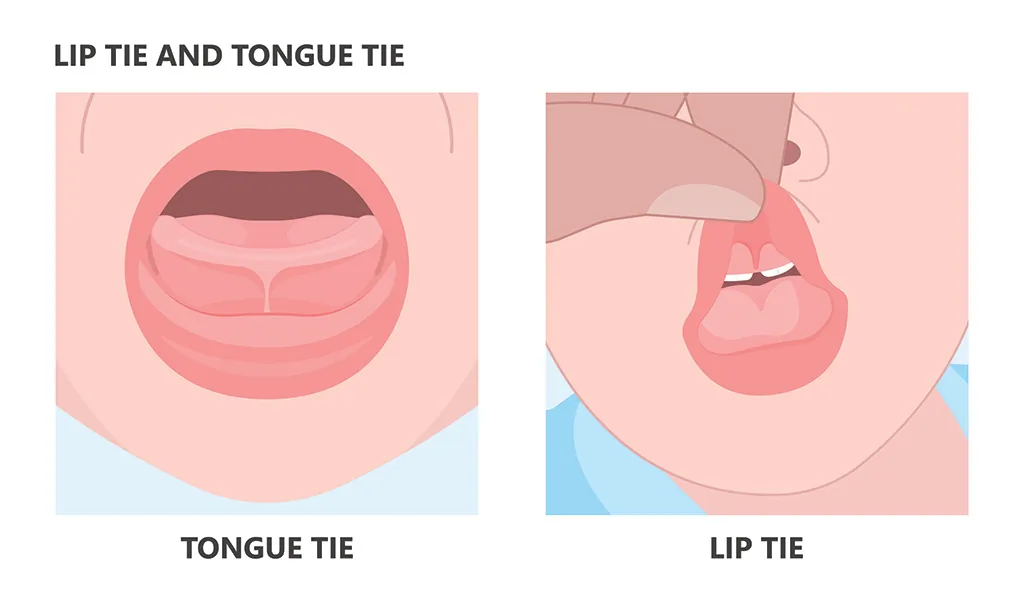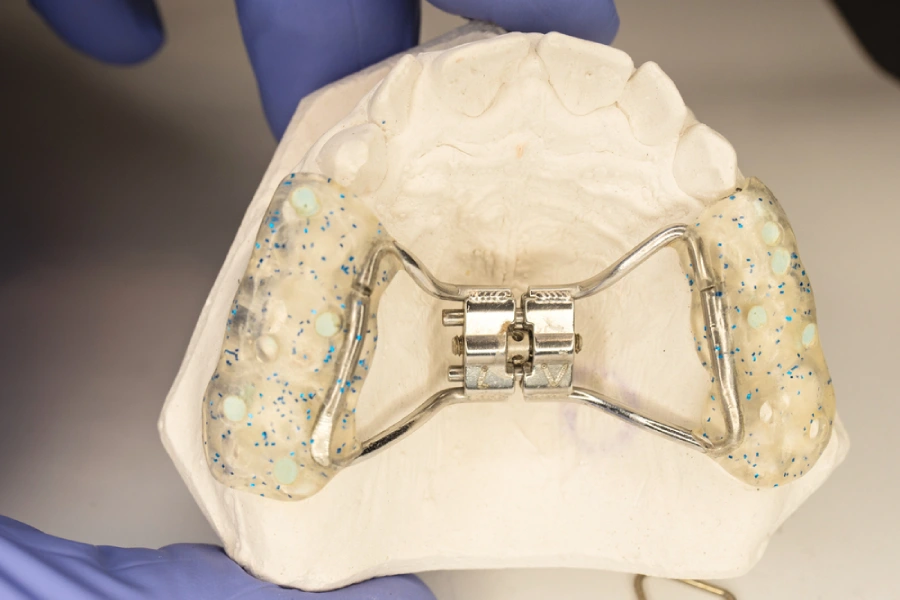
Lip tie in babies occurs when the labial frenulum, a piece of connective tissue that attaches your lip to your gums, is too closely attached (is too tight). Lip ties can create issues with breastfeeding or bottle feeding as well as other dental issues, such as overbites. Therefore, it’s important to be sure that your baby is examined by a pediatric dentist to ensure that their labial frenulum is normal and not overly tight, especially if they exhibit some of the most common symptoms associated with lip tie.
Lip Tie in Babies: An Overview
Upper lip tie in babies is more common than lower lip tie, but it is possible for either the superior (upper) labial frenulum or the inferior (lower) labial frenulum to exhibit lip tie.
In either case, lip tie happens when the frenulum is either too tight, too thick, or both. While this is usually not painful for the baby experiencing lip tie, it can cause various issues with both feeding and oral development.
Signs & Symptoms of Lip Tie
Recognizing the signs of a lip tie in your baby could help ensure early intervention. Some common indicators include:
- Feeding Challenges: Difficulty latching, prolonged feeding sessions, and frequent gassiness or fussiness during or after feeding are common feeding-related symptoms associated with lip tie in babies. Your baby may also make clicking sounds when feeding with lip tie.
- Oral Development Issues: Limited lip movement can impact a baby’s ability to suck effectively, which can lead to oral development issues like overbites.
If you notice any of these symptoms, it’s best to contact a trusted pediatric dentist to conduct a medical examination of your baby and determine if the lip tie should be removed to free up movement and prevent further issues.
In one study, parents concerned about lip tie cited the following as the most common symptoms associated with lip tie, in descending order:
- Breastfeeding problems
- Speech problems
- Bottle feeding problems
- Orthodontic problems
- Feeding problems in older children
- Reflux
- Snoring/sleep problems
- Dental decay
- Nasal problems
Impact of Lip Tie in Babies
Lip ties can cause a number of issues for both baby and mama in both the short-term and long-term. Here are some of the most common:
- Slow Weight Gain: A lip tie can make it hard for your baby to get enough milk, which can make them constantly hungry and cranky. This can, in turn, lead to abnormal weight gain, so keeping a log of your baby’s weight, especially if you suspect lip tie, could be smart.
- Pain for Nursing Moms: Lip ties can make breastfeeding uncomfortable and even lead to sore or cracked nipples. If you notice excess pain after nursing, lip tie could be contributing.
- Tummy Troubles: Lip ties can cause babies to swallow a lot of air, which can lead to abnormal levels of gas or spit up. If you’ve been burping your baby religiously but gas continues to be an issue, this could be to blame.
- Future Issues: In some cases, lip ties might even contribute to speech difficulties or dental problems, including dental decay or orthodontic issues down the road.
Treatment for Lip Tie in Babies: What to Expect
Lip tie is usually corrected via a relatively painless procedure called a lingual frenotomy.
During a lingual frenotomy, local anesthesia is usually applied, then the lip is held taught and the lip tie is cut, freeing up movement in the affected area.
During the recovery process, your baby might experience minor pain and swelling for a few days, but in most cases, healing begins in a day or two.
To avoid re-attachment of the frenulum, there are a number of post-surgical stretches and exercises you can perform on your baby to enhance the long-term outcome of success.
Get Your Baby Evaluated for Lip Tie Issues
Concerned about your baby’s lip tie? Wondering if what your baby is experiencing is, in fact, lip tie, or something else? We invite you to schedule a consultation with The Super Dentists today to ensure your baby gets the expert care they deserve.









